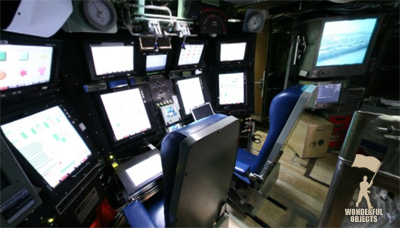But in reality, no one (except maybe one of my friends) moves the computer, like, ever. So there goes that benefit. Secondly, if you know what hardware components cost and you understand the specs, you'll probably end up with the thought, "I can get this and that cheaper with dell (or hp, or build my own)".
I'm a big time nerd with computers, so I like to have my options open and flexible. I like the cables, and the separate boxes, and a tower so ridiculously big, I can crawl into it. But that's me.
-superboyac
+1 on both points. I don't think I've ever acquired a piece of technology or a tool that I haven't begun to disassemble and tinker with less than 15 seconds after I got it. Many times, I've only done it in my mind. But not always.
There's a certain inventor/DIY mindset a lot of us have that will never be totally satisfied with any canned solution - no matter how perfect it is.
And as far as neat, built-in, polished
appliancey looking computers and environments go - you can keep them. I'm of the submarine/missile silo/matrix persuasion where everything's out in plain sight and easy to get to.
Look at this little crow's nest. It's the control center in a Virginia-class nuclear attack submarine. It's
awesome.

I'll always prefer my computing environment to be a little funky looking. Part of that comes from building my own (either out of necessity
or for the pure joy of it) as often as possible. To me, there are few things more intellectually gratifying than sitting it the presence (or middle

) of some incredibly complex
dogpile of technology - and realize you
understand it all its complexity!
And it becomes an even bigger 'head rush' when you've built it yourself.

So please pass your pretty tablets and slick Apple designs over to someone else. Ūber-neat packaging leads to brain-rot! Besides, builders like to leave the hood open so they can admire their creations.
And fix them.

